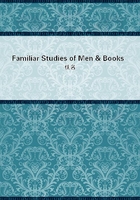
第91章
In this letter, (2) which he kept back until the 22d, still hoping that things would come right of themselves, he censures the great secretary for having "followed the world in the way of perdition," characterises him as "worthy of hell," and threatens him, if he be not found simple, sincere, and fervent in the cause of Christ's gospel, that he shall "taste of the same cup that politic heads have drunken in before him." This is all, I take it, out of respect for the Reformer's own position; if he is going to be humiliated, let others be humiliated first; like a child who will not take his medicine until he has made his nurse and his mother drink of it before him. "But I have, say you, written a treasonable book against the regiment and empire of women. .
. . The writing of that book I will not deny; but to prove it treasonable I think it shall be hard. . . . It is hinted that my book shall be written against. If so be, sir, I greatly doubt they shall rather hurt nor (than) mend the matter."
And here come the terms of capitulation; for he does not surrender unconditionally, even in this sore strait: "And yet if any," he goes on, "think me enemy to the person, or yet to the regiment, of her whom God hath now promoted, they are utterly deceived in me, FOR THE MIRACULOUS WORK OF GOD, COMFORTING HIS AFFLICTED BY MEANS OF AN INFIRM VESSEL, I DO ACKNOWLEDGE, AND THE POWER OF HIS MOST POTENT HAND I WILL OBEY. MORE PLAINLY TO SPEAK, IF QUEEN ELIZABETH SHALL CONFESS, THAT THE EXTRAORDINARY DISPENSATION OF GOD'S GREAT MERCY MAKETH THAT LAWFUL UNTO HER WHICH BOTH NATURE AND GOD'S LAW DO DENY TO ALL WOMEN, then shall none in England be more willing to maintain her lawful authority than I shall be.
But if (God's wondrous work set aside) she ground (as God forbid) the justness of her title upon consuetude, laws, or ordinances of men, then" - Then Knox will denounce her? Not so; he is more politic nowadays - then, he "greatly fears" that her ingratitude to God will not go long without punishment.
(1) Knox to Mrs. Locke, 6th April 1559. Works, vi. 14.
(2) Knox to Sir William Cecil, 10th April 1559. Works, ii.
16, or vi. 15.
His letter to Elizabeth, written some few months later, was a mere amplification of the sentences quoted above. She must base her title entirely upon the extraordinary providence of God; but if she does this, "if thus, in God's presence, she humbles herself, so will he with tongue and pen justify her authority, as the Holy Ghost hath justified the same in Deborah, that blessed mother in Israel." (1) And so, you see, his consistency is preserved; he is merely applying the doctrine of the "First Blast." The argument goes thus: The regiment of women is, as before noted in our work, repugnant to nature, contumely to God, and a subversion of good order.
It has nevertheless pleased God to raise up, as exceptions to this law, first Deborah, and afterward Elizabeth Tudor - whose regiment we shall proceed to celebrate.
(1) Knox to Queen Elizabeth, July. 20th, 1559. Works, vi.
47, or ii. 26.
There is no evidence as to how the Reformer's explanations were received, and indeed it is most probable that the letter was never shown to Elizabeth at all. For it was sent under cover of another to Cecil, and as it was not of a very courtly conception throughout, and was, of all things, what would most excite the Queen's uneasy jealousy about her title, it is like enough that the secretary exercised his discretion (he had Knox's leave in this case, and did not always wait for that, it is reputed) to put the letter harmlessly away beside other valueless or unpresentable State Papers. I wonder very much if he did the same with another, (1) written two years later, after Mary had come into Scotland, in which Knox almost seeks to make Elizabeth an accomplice with him in the matter of the "First Blast." The Queen of Scotland is going to have that work refuted, he tells her; and "though it were but foolishness in him to prescribe unto her Majesty what is to be done," he would yet remind her that Mary is neither so much alarmed about her own security, nor so generously interested in Elizabeth's, "that she would take such pains, UNLESS HER CRAFTY COUNSEL IN SO DOING SHOT AT A FURTHER MARK." There is something really ingenious in this letter; it showed Knox in the double capacity of the author of the "First Blast" and the faithful friend of Elizabeth; and he combines them there so naturally, that one would scarcely imagine the two to be incongruous.
(1) Knox to Queen Elizabeth, August 6th, 1561. Works, vi.
126.
Twenty days later he was defending his intemperate publication to another queen - his own queen, Mary Stuart.